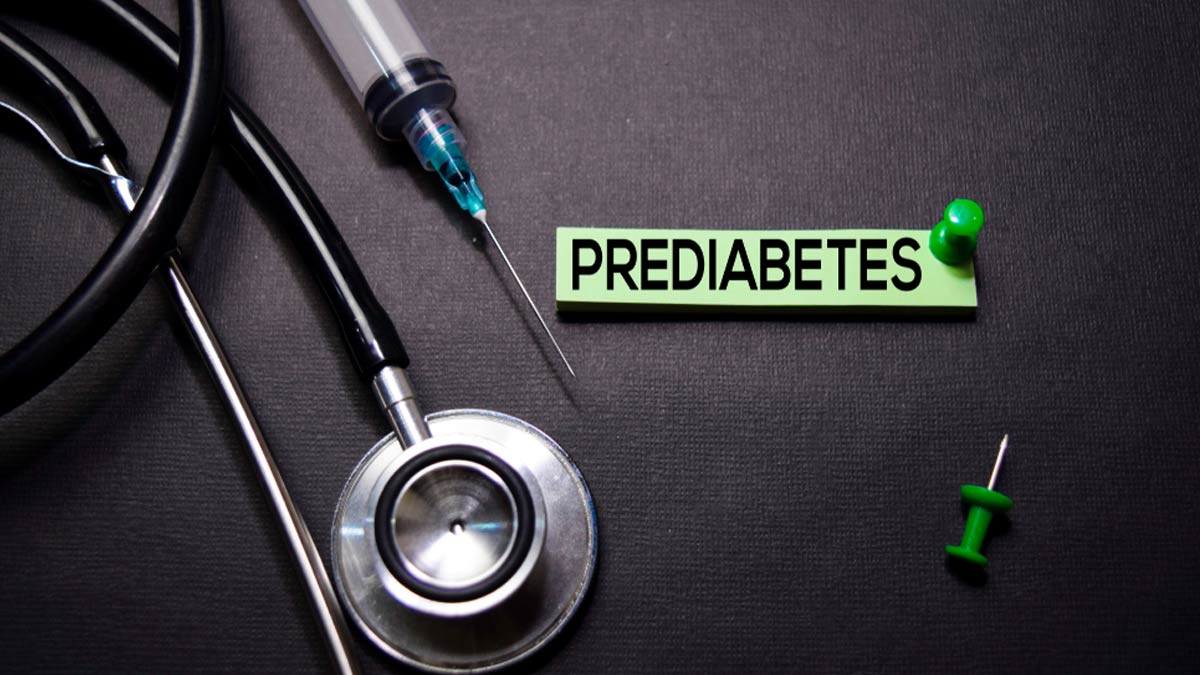
People with prediabetes must be extra cautious when it comes to diet and lifestyle. It is a condition in which the blood sugar levels are higher than normal but not high enough to be diagnosed as type 2 diabetes. It is a warning sign to make healthy lifestyle changes to avoid being diagnosed with diabetes. We spoke to our expert, Dr Arun Kumar C Singh, Director, Endocrinology and Diabetology, Metro Heart Institute with Multispeciality, Faridabad, who explained the role of diet and exercise in preventing and reversing prediabetes and how to do so.
Table of Content:-
According to the research published in The Lancet Diabetes and Endocrinology, 136 million Indians or 15.3% of the population may have prediabetes.

According to the projections of the Indian Journal of Ophthalmology, diabetes will be the cause of mortality for over 592 million people worldwide by 2035. Hence, it’s time you stop avoiding necessary health checkups and making dietary and lifestyle changes. The American Diabetes Association (ADA) states that people who are overweight (body mass index ≥ 25 kg/m2) and have any additional risk factors should begin testing for diabetes at age 45.
Also Read: Addressing India's DIABETES DILEMMA Never Too Early To Test But May Be Too Late To Treat
Role Of Diet In Reversing Prediabetes

Diet is a cornerstone when it comes to reversing prediabetes. “Adopting a low-glycemic, nutrient-dense diet is a crucial step that you should follow. This involves choosing complex carbohydrates, such as whole grains and legumes, over refined sugars”, informed Dr Singh. On the other hand, fibre-rich foods stabilise blood sugar levels, aiding in prevention. Incorporating lean proteins and healthy fats fosters satiety and regulates insulin responses.
According to the Permanente Journal, 37% of those with prediabetes may develop diabetes within four years if they do not receive treatment. The percentage of prediabetic patients who acquire diabetes may drop to 20% with lifestyle changes.
Portion Control
Another important factor is portion control. Monitoring caloric intake helps maintain a healthy weight, reducing the risk of insulin resistance. Thus, cutting back on processed foods and sugary beverages is imperative.

Balanced Diet
“Complementing a balanced diet, regular exercise is indispensable. Physical activity enhances insulin sensitivity, allowing cells to better respond to insulin”, said Dr Singh. Both aerobic exercises, like brisk walking, and strength training contribute to glycemic control. Also, strive for 150 minutes of moderate exercise per week.
Also Read: Obesity And Diabetes: Expert Lists Dietary Tips For Managing And Reversing Obesity And Diabetes
Weight Management
Weight management is intertwined with exercise. As per the ADA, exercise can lower blood sugar levels for up to 24 hours following a workout.
Dr Singh added, “Shedding excess pounds reduces the burden on the pancreas and improves insulin function. Even modest weight loss can yield significant benefits.” According to a review conducted by the Journal of Physical Activity and Health, encouraging physical activity involvement and promotion can help people with prediabetes slow down the course of their condition, which lowers the morbidity and death linked to type 2 diabetes.
Bottomline
Dr Singh concluded, “The synergy of a mindful diet and regular exercise holds the key to halting and even reversing the trajectory toward diabetes. By adopting these lifestyle changes, individuals can reclaim control over their health, preventing the progression from prediabetes to a more serious diagnosis. Also, make sure you maintain consistency. Establishing sustainable habits ensures long-term success. Monitoring blood sugar levels and consulting healthcare professionals regularly is also advised.”
[Disclaimer: The information in this article is shared by a registered healthcare professional and is for informational purposes only. Hence, we advise you to consult your expert if you notice any symptoms of diabetes to avoid complications.]
Also watch this video
How we keep this article up to date:
We work with experts and keep a close eye on the latest in health and wellness. Whenever there is a new research or helpful information, we update our articles with accurate and useful advice.
Current Version